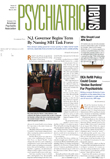When it comes to an individual's psychological reaction to ill health, F. Scott Fitzgerald was not far off the mark when he said: “Let me tell you about the very rich. They are different from you and me.”
Research shows only a small correlation between wealth and happiness, but when illness or disability strikes, the financially secure suffer less from sadness and loneliness and a have higher level of well-being than the less well off, according to a report from the University of Michigan Health System and the Ann Arbor VA. The study reveals for what is believed to be the first time that a psychological gap exists between “haves and have-nots” during illness or disability.
The researchers analyzed data from 478 participants in the Health and Retirement Study (HRS) conducted by the University of Michigan Institute of Social Research, with funding from the National Institute on Aging. All subjects became disabled between 1992 and 2000 and were interviewed regularly during the study. Disability was defined as the inability to carry out routine tasks of daily living. The median net worth of the study group was $98,400, and 311 had assets below that level. The people above the median were arbitrarily considered “wealthy” in contrast to those below it, who were considered “not so wealthy.”
Using a standardized survey, participants rated their psychological well-being periodically, focusing on happiness, enjoyment of life, sadness, and loneliness. An analysis of how their ratings changed over time—from predisability to postdisability—revealed that those with assets above the median before they became disabled suffered a much smaller drop in self-reported well-being than those below the median.
In a second measurement several years later, the well-being of those with lower net worth tended to improve, while in those with higher net worth it decreased slightly.
Lead author Dylan Smith, Ph.D., told Psychiatric News: “As we age, most of us acquire a disability. And the study suggests that being wealthy will buffer you somewhat from the psychological effects of illness. However, wealth makes a huge difference to well-being for people near the poverty level.”
He is a research specialist at the VA Health Services Research and Development Center and a University of Michigan psychologist and internal medicine researcher.
At first only a slight correlation was seen when people in good health were compared with those in poor health. But after the researchers created a disability-onset variable and looked at cross waves of the HRS study, people in one wave said “I have no disability” and in the next wave said“ I have substantial disability.” In those whose disability was of recent onset, the effect was much stronger, and the magnitude of difference surprised the researchers.
Among the limitations of the study, only functional symptoms were assessed, and no comparisons were made among different illnesses including whether they were mental or physical. A study of some cancer patients revealed the same effect, but it was not as strong, indicating that the correlation can be driven by some illnesses more than others. That study did not include any extremely wealthy individuals, only the wealthy and less wealthy.
“Our study suggests that it is better to save for a rainy day than to spend your savings on a house where it doesn't rain,” said senior author Peter Ubel, M.D., a professor of internal medicine and psychology at the University of Michigan and a staff physician at the VA Ann Arbor Healthcare System.
“Happiness and well-being may not depend on a person's financial state in times of health, but when that health fails, as it will eventually for most of us, money matters,” he added.
The new finding is especially relevant during the national debates on Social Security, Medicare, and bankruptcy reform as it could help inform policymakers of the value of financial security and how it affects mental health when physical health fails. It also stresses the importance of personal savings, retirement planning, and “safety-net” government programs for the seriously ill and disabled. Half of personal bankruptcies are associated with health care debt.
While the researchers hasten to add that their study does not demonstrate directly that having more money and more assets shields a person from a psychological downfall when disability strikes—psychological factors associated with the ability to accumulate wealth could also make the rich more resilient when they become disabled—it is believed to be the first time money has been shown to be a possible buffer for a person's well-being after a decline in health.
“It is about time someone looked at the effects of money on individuals in specific situations.” Randy Nesse, M.D., a psychiatrist at the University of Michigan and the Institute for Social Research, told Psychiatric News after he reviewed the paper. “This is a wonderful piece of work.”
The report has ben accepted for publication in Psychological Science.
The National Institute of Child Health and Human Development funded the study. The National Institute on Aging funded the Health and Retirement Study at the University of Michigan Institute for Social Research. ▪
